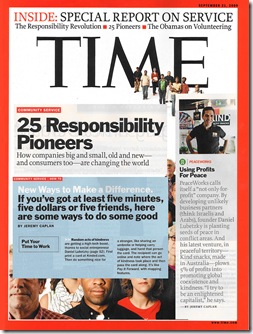|
Your mother called it roughage, and prunes were once the poster child. Now fiber holds the coveted spot as the new "it" ingredient.
Throughout the years, fiber has fallen in and out of favor. (Remember the oat bran craze of the late ’80s?) Today it’s back on top and popping up in some unexpected places — ranging from yogurt, cottage cheese and ice cream to cookies, toaster pastries and snack bars.
You can even drink your fiber. No, we’re not talking about Metamucil, or other laxatives — which, by the way, have been transformed into "fiber supplements." Now you can buy fiber-fortified juices, powdered drink mixes and bottled waters, or sprinkle packets of Splenda with fiber in your coffee.
"Fiber has emerged as a functional food favorite," said Tom Vierhile, director of Datamonitor’s Product Launch Analytics. The New York-based market research firm reports that 7 percent of all new food products introduced in 2009 had a "high fiber" claim. (Functional foods, or products that provide a specific health benefit, typically rely on some type of fortification.)
A true indication of the power of this trend is the rise of fiber-based brands, or products whose entire value proposition relies on fiber, according to Krista Faron, a senior analyst at Mintel, the market research firm. She cites General Mills Fiber One — a brand that started with cereal but has branched into an entire family of products that range far beyond the breakfast aisle.
The Fiber One promise is, "Cardboard no, delicious yes."
This modern approach to fiber is a far cry from a bowl of bran. The new high-fiber foods are spiked with isolated fibers — a type of purified powder that differs from the intact fiber that is naturally found in whole grains, fruits and vegetables.
These so-called functional fibers, often inulin and polydextrose (see accompanying story), do not have a grainy or gummy texture, so they allow manufacturers to add fiber into creamy yogurts, clear drinks and other previously fiber-free places. This type of fiber fortification is often behind the claim "35% Daily Value of Fiber" or "Double the Fiber" that is showing up on the front of package labels.
This is not necessarily a bad thing, but these fibers are different from those that are naturally occurring, said Joanne Slavin, a University of Minnesota researcher and one of the country’s leading experts on dietary fiber.
Studies continue to document the numerous health benefits of eating a high-fiber diet, but the evidence on these isolated fibers is much skimpier.
"This concept might make sense, but it’s less researched," said Slavin. "It’s an up and coming area."
For example, some studies do suggest that inulin may help boost the beneficial bacteria in our digestive tract, but there is little or no evidence that this type of fiber helps lower cholesterol or aids regularity.
Additionally, the obesity-related research is linked to people eating high-fiber, lower calorie foods like fruits and vegetables. The weight loss benefits would not likely apply if you loaded up on high-fiber, calorie-dense foods such as chocolate-granola snack bars and ice cream.
Even so, Slavin said these isolated fibers may help make it easier for people to get more fiber. Most of us only get about half the fiber we need. (Current recommendations are 25 to 38 grams of fiber per day.)
"There are a lot more choices to get fiber, and that’s the upside," she said. "If fiber doesn’t taste good, people won’t eat it."
Still, she worries that these new fiber-fortified products may give people an "out." She doesn’t want people to think "I’m off the hook" just because they snacked on a cookie or snack bar spiked with fiber.
"We have to keep the [spotlight] on whole grains, fruits and vegetables," she said. These foods naturally contain fiber along with other health-promoting nutrients. If you eat three fiber-fortified chocolate bars, you can meet your fiber goal, but it’s not the same as if you ate an abundance of foods that naturally contain fiber.
It’s also a lot easier to overdo it on fiber with the sudden onslaught of fortification, Slavin said. Your health may not be in danger, but you could pay for it in digestive discomfort.
Despite the differences between isolated and intact fiber, they all look the same on a nutrition label (grams of fiber per serving). You’ll need to check the ingredient list to know the source of fiber.
Bottom line, all fiber is not created equal, and a mixture is best. Plus, there may be benefits of getting a bulk of your fiber the old-fashioned way.
Know your fiber
Soluble fiber: Naturally found in oats, barley and beans. Helps lower blood cholesterol, which may reduce the risk of heart disease. May help manage blood sugar levels to lower diabetes risk.
Insoluble fiber: Naturally found in whole grains, bran, seeds, nuts, vegetables and fruits. Helps aid regularity and may reduce the risk of colon cancer.
Functional fibers: Isolated or extracted chemically from various plant sources. Ingredients include inulin, polydextrose, resistant maltodextrin, oligosaccharides and cellulose.
Prebiotics: A type of fiber that feeds probiotics, the good bacteria in your digestive tract. Primary source is inulin (from chicory root or Jerusalem artichoke).
CONTACT: ctc-goodeating@tribune.com
|













